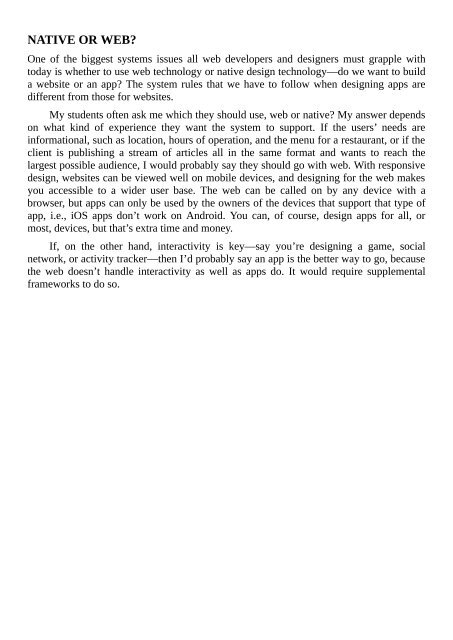You also want an ePaper? Increase the reach of your titles
YUMPU automatically turns print PDFs into web optimized ePapers that Google loves.
NATIVE OR WEB?<br />
One of the biggest systems issues all web developers and designers must grapple with<br />
today is whether to use web technology or native design technology—do we want to build<br />
a website or an app? The system rules that we have to follow when designing apps are<br />
different from those for websites.<br />
My students often ask me which they should use, web or native? My answer depends<br />
on what kind of experience they want the system to support. If the users’ needs are<br />
informational, such as location, hours of operation, and the menu for a restaurant, or if the<br />
client is publishing a stream of articles all in the same format and wants to reach the<br />
largest possible audience, I would probably say they should go with web. With responsive<br />
design, websites can be viewed well on mobile devices, and designing for the web makes<br />
you accessible to a wider user base. The web can be called on by any device with a<br />
browser, but apps can only be used by the owners of the devices that support that type of<br />
app, i.e., iOS apps don’t work on Android. You can, of course, design apps for all, or<br />
most, devices, but that’s extra time and money.<br />
If, on the other hand, interactivity is key—say you’re designing a game, social<br />
network, or activity tracker—then I’d probably say an app is the better way to go, because<br />
the web doesn’t handle interactivity as well as apps do. It would require supplemental<br />
frameworks to do so.


